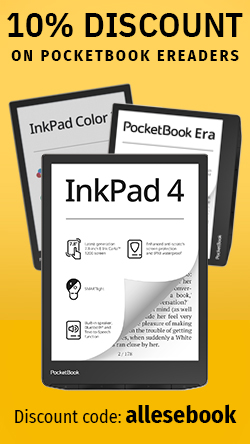Nook Exits UK Market: Barnes & Noble Closes UK eBook Store and App Services

It’s been known for quite some time that Barnes & Noble’s eBook business is struggling. The Nook division has been operating at a loss for years, and there seems to be no improvement in sight.
Now it appears that the digital business of the largest brick-and-mortar bookseller in the US is slowly but surely approaching its final end. On March 15, the company will close its UK eBook store. On the same day, their proprietary App Store will also be discontinued, and Nook Video will be shut down on April 30.
Already in June 2015, apart from the UK, Barnes & Noble had withdrawn from the European market. The future of their UK operations was still uncertain back then. With the announced closure on their homepage, the matter has now become clear after about a year. The tentative international venture of the US retailer comes to a definitive end.
Customer Migration with Drawbacks
UK Nook customers will have the option to transfer their eBooks to Sainsbury’s Entertainment. The process will be similar to Sony’s exit from the end-user market. Customers will receive an email with instructions on how to transfer their Nook content to the new content provider.
Nook customers will have just over two weeks to take advantage of the offer. From March 31, you will no longer be able to download your purchased eBooks from your Nook account.
For owners of dedicated Nook readers, this move presents a significant downside: When the UK Nook store is closed, customers will no longer be able to purchase content on their eBook readers. By the end of March, syncing will also cease to function.
The Sainsbury’s eBooks can thereafter only be transferred to the eReader via sideloading, which means only part of the available storage space can be used. The internal storage of older Nook models was partitioned into two parts: 1.5 GB reserved for files purchased from Barnes & Noble, and only about 500 MB can be used for sideloading.
Owners of the second Nook Glowlight, which lacks a MicroSD card expansion, will find their usage significantly restricted. Whether Barnes & Noble will provide a solution with a software update to fix this issue remains unknown.
Many Mistakes and Late Course Correction
Looking back at the early days of the US eBook industry, it is a bit surprising to see how poorly the Nook segment is performing now. About 5 to 6 years ago, Barnes & Noble was competing head-to-head with Amazon for the fast-growing US market.
The beginning of the end came with the introduction of the Nook HD tablets. At that time, numerous market analyses and customer surveys were already predicting that dedicated reading devices had no future. Users would soon switch to tablets for reading eBooks. As a result, Barnes & Noble stopped introducing new eBook readers and focused entirely on the two tablets.
Admittedly, the tablets weren’t so bad – the price-performance ratio was reasonable. However, they failed to excite many people, and eventually, the tablets had to be sold at significant discounts with free eReader offers.
Note: Recent market analyses show that the business with dedicated readers is still growing in the US. The number of users is expected to rise from 83 million to 93 million by 2020, while the number of tablet users is projected to grow from 160 million to 185 million during the same period.
The next mistake was launching a new eBook reader. Instead of introducing a device on par with the Kindle Paperwhite, they offered an eReader with outdated technology right from the market launch. It wasn’t enough to retain or win back customers.
Only in 2015 did they release the Nook Glowlight Plus, an eReader with a 300 ppi display. But it was too late. The device offers no significant advantages over the Kindle Voyage or Paperwhite, causing the Nook business to continue shrinking.
Therefore, it’s worth watching whether Barnes & Noble will eventually shut down their eBook business in the US as well.
Opportunity for Tolino?
Amazon is the undisputed market leader in the UK. Apple and Google each claim about 10 percent of the market according to various surveys, with Kobo slightly behind. However, reliable figures are not available. Common across various analyses is that Barnes & Noble has been at the rear of the market.
There’s the question of whether the Tolino alliance will eventually venture into the UK market, but the end of the Nook business is likely to have little relevance for such considerations due to its small market share. The competitive situation in the UK eBook market is unlikely to change with the Nook withdrawal.
Nonetheless, it would be interesting to see if the Tolino brand can establish itself in the English-speaking region. In Germany, they quickly gained market share thanks to a home advantage and left the rest of the Amazon competition behind. Currently, Tolino eReaders are offered by all major bookstore chains.
Ultimately, it will likely depend on how the business performs in the Netherlands, Italy, and Belgium. In Belgium, there is also the opportunity to gain experience on how the lack of book price fixing affects competitiveness.
